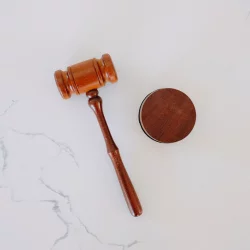How to Prove Fault in a Car Accident Compensation
Stamford, Connecticut, with its fast-paced downtown, major highways, and heavy commuter traffic, sees its share of vehicle collisions. As one of the busiest cities in Fairfield County, it’s not uncommon for residents and visitors alike to find themselves dealing with the aftermath of a car accident. In such situations, proving who was at fault is crucial—not only for insurance purposes but also for securing fair compensation for injuries and damages.
Fault determines liability, and without clear proof, claims can be delayed, denied, or underpaid. Whether the crash happened along I-95 or on a quiet neighborhood street, building a strong case requires understanding local traffic laws, collecting evidence, and documenting events with care. A car accident lawyer in Stamford brings the experience and legal knowledge necessary to investigate thoroughly and advocate effectively. With their help, victims can focus on recovery while their rights are being protected.
Determining Who Is at Fault in Car Crashes
In car accidents, fault is the responsibility assigned to a party for the car accident. Evidence of fault is vital for insurance claims and may affect your compensation. While the specifics of fault determination differ from jurisdiction to jurisdiction, they are generally governed by similar principles.
Gathering Evidence
The collection of evidence is essential for proving fault. Photos of the scene of the accident, any damage, and the road conditions also provide visual evidence of the crash. For example, detailed photos can show skid marks or traffic signals that you may not be able to see otherwise.
Witness statements are also crucial evidence. They can provide an unbiased testimony of events and help substantiate claims. Obtaining contact details of bystanders ensures they can be called upon to testify in the future.
Police Reports
Police reports are an official record of the accident. Authorities evaluate the situation, question those present, and gather information. These reports also tend to point to probable fault. A copy of this document can help strengthen your claim.
Traffic Laws and Regulations
Knowledge of traffic laws helps in proving fault. Liability will often be proven due to violations such as speeding or running a red light. Knowing local regulations allows individuals to express how particular infractions led to the accident.
Talking to legal representatives familiar with traffic regulations can also help you develop a clearer understanding. This ensures that you are capable of accurately correlating how the violations affected the incident.
Expert Testimonies
In car accident claims, it can be very helpful to have an expert testify on your behalf. Crash reconstructionists break down the dynamics of a crash and analyze the contributing factors. Such evaluations are used to back up claims, making them more credible in the face of potential technical challenges.
Similarly, healthcare professionals can also help substantiate your claims. Doctors examine injuries and link them to the accident, explaining the magnitude of damage done. Their testimonies highlight the need for compensation.
Negotiations with Insurance Companies
Insurance companies conduct investigations to determine how to assign fault. Claimants should comply with insurers and supply the necessary details without delay. However, interacting with insurance professionals should be done cautiously because they often aim to reduce payouts.
Working out some kinks when negotiating with insurance representatives takes practice. Some people might find legal assistance beneficial in negotiating a fair settlement, since attorneys’ experience in dealing with insurance companies can increase the chances of a favorable outcome.
Legal Representation
Skilled legal representation can influence the outcome of compensation claims. Personal injury law is complex, and many steps must be taken to ensure that the process goes smoothly and that you do not miss any deadlines or opportunities to build a case.
Hiring a legal expert can minimize the stress so one can focus on recovery. Attorneys handle negotiations, collect evidence, and can represent you in court. They will consider your best interests and protect your rights.
Conclusion
Determining blame in a car accident is a complex task that requires assessing multiple factors. Besides collecting enough evidence, knowing traffic laws and involving expert witnesses are important steps. Working with legal professionals also increases the odds of attaining fair compensation so victims can get back on their feet.
More to Read:
Previous Posts:



